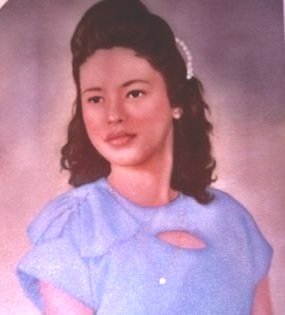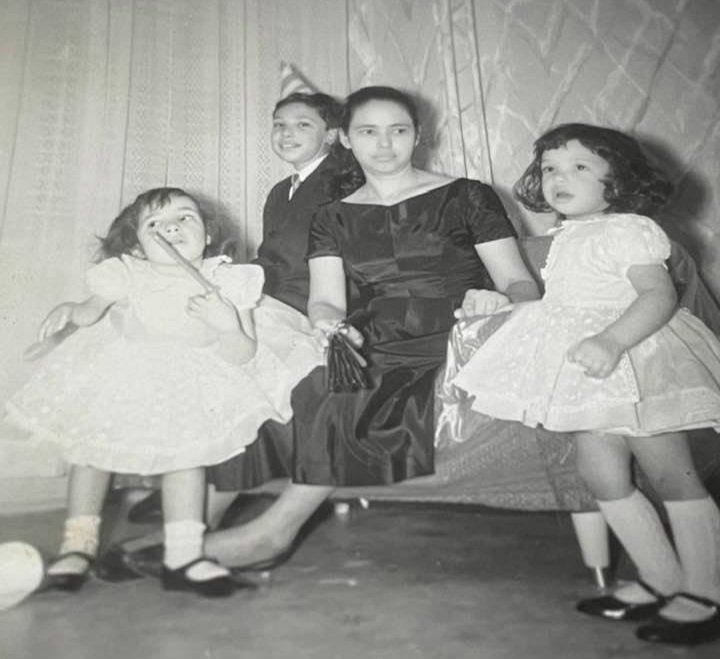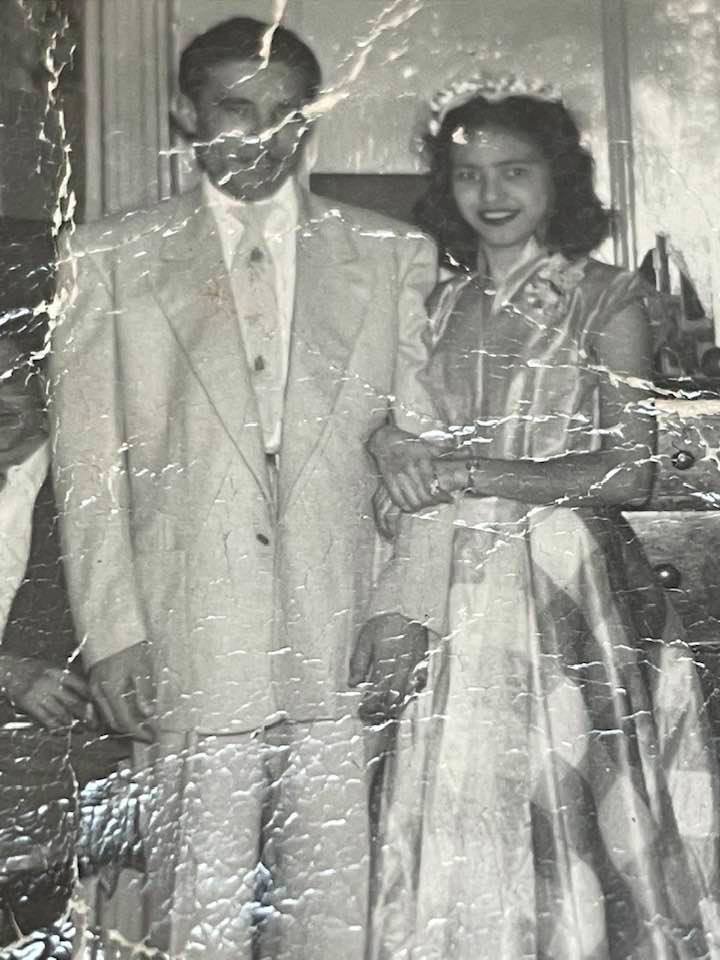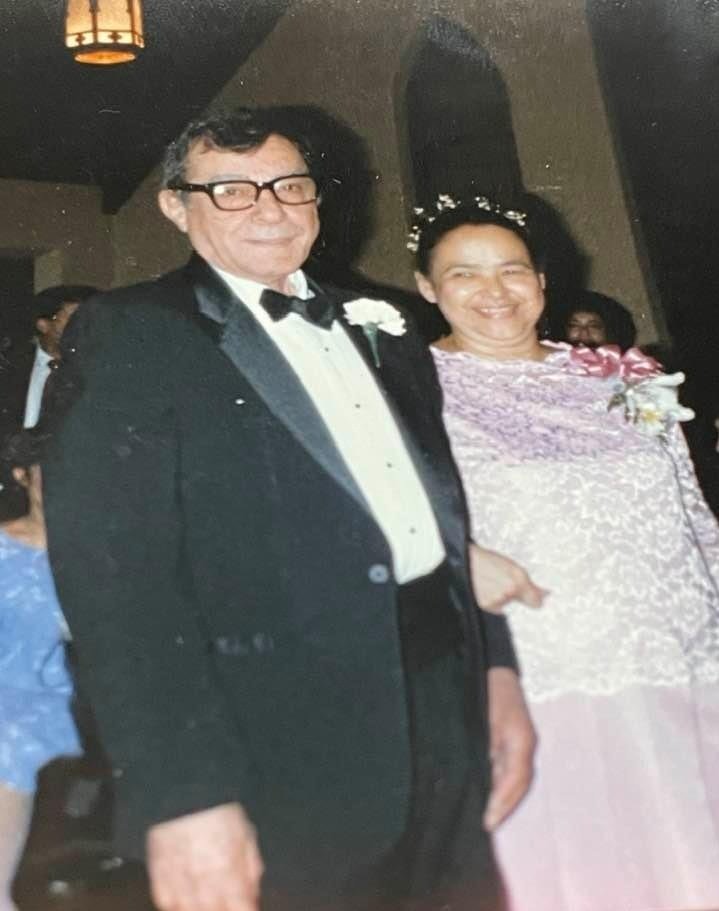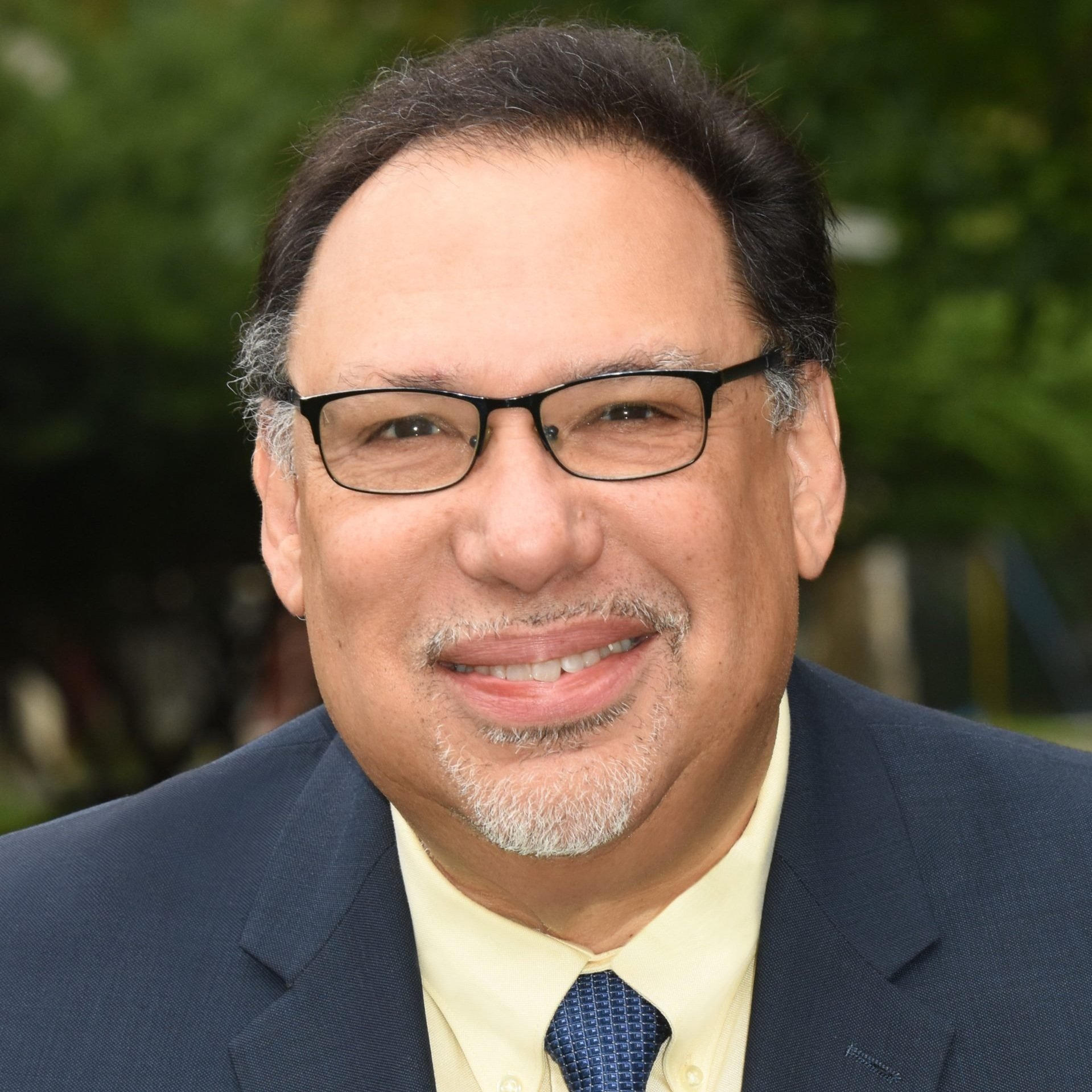Seventy Years Since
Efrain Agosto narrates a first-generation Puerto Rican migration story in honor of his parents
Emerita Agosto Pérez and Efraín Agosto Saldaña, New York City, mid-1950s. Photo courtesy of Efraín Agosto
INVOCATION
“Great spirit—great spirits—I call you in the most humbling of reverence...To guide me...To cleanse this space, for those of us who come here willing to share our stories.”
From Yerba Bruja (Long Wharf Theatre and Sageseeker Productions, 2021), a film directed and produced by Jasmin Agosto (right), daughter of Efraín Agosto. Image source: Arts Council of Greater New Haven
As we begin 2022, I am still reflecting on how 2021 was the 70th year since my parents Efraín Agosto Saldaña and Emerita Agosto Pérez moved from Puerto Rico to New York City.
In February of 1951, two years after they were married in October of 1949, my father traveled to New York City, looking for much needed work. Why he left the warmth of Puerto Rico for New York City in the coldest month of the year has always flummoxed my sisters and me. During our childhood and teenage years, whenever we asked, he would say, “I didn’t know it would be so cold!” A friend of his convinced him there was work to be had, and so they left. It took a while to find a place to stay and a job to hold. He would tell us of sleeping in rescue missions and finding day jobs until work as a restaurant dishwasher took hold.
Efrain Agosto, Sr. with Elizabeth and Efrain, Jr., ca. 1960. Photo courtesy of Efraín Agosto
For most of the rest of his working life, the bulk of his full-time jobs were bussing, waiting tables, serving as a short-order cook. It was never quite enough to build a prosperous life financially, but he made just enough until he could work no more. For my father, those early years growing up poor in the countryside of Puerto Rico, with only a third-grade education (during his and my mom’s childhood years, the US imposed English-only instruction in the grade schools of Puerto Rico, no doubt impacting the education of my parents and their generation), with no land of his own to till—which he loved to do—had made it difficult for him to find his way in the US of A, to which he was practically forced to migrate to find work. But he loved his family and was never too far from us, nor we from him. A debilitating illness in the late 1960s led to life-time disability. He died of lung cancer in October of 1995.
Emerita Pérez at age 17, Carolina, Puerto Rico. Photo courtesy of Efraín Agosto
My mother, smart woman that she was, did not join my dad until June of 1951, when the weather got warmer and Efraín was more settled. Emerita had been a gifted seamstress and dress-maker since her teen years in Puerto Rico. She found work as a piece-worker in New York City factories, both in the South Bronx, where we first lived, and then in Williamsburg, Brooklyn, where we moved in 1964. (I was born in 1955, and my two sisters – Elizabeth and Naomi – in 1958 and 1962, respectively). Besides her work in factories, my mother became known in the churches we attended, especially in Brooklyn, as the go-to person for quality dress-making. She made dresses for church ladies and girls, and their friends and family, including for birthday parties, graduations, and even weddings. It was an important supplemental income for the family.
Emerita Pérez on her 80th birthday, Bethel, Connecticut, 2010. Courtesy of Efraín Agosto
Later in life, my mom quit the factories and became a baby-sitter and dress-maker. Emerita had always loved kids. She even served as a “Foster Grandparent” in the Boston area, where a couple of us kids had moved in the 1980s; this government program hired older citizens to help out in Day Care Centers. In 2013, she died from the aftereffects of a stroke. During her funeral service, the pastor Rev. Pablo Díaz, a good friend of ours since our New York days, and her pastor in Boston pointed out how Emerita’s life as an orphan in Puerto Rico and being raised by family members since age two had probably marked her lifelong love of children, both teaching them in church Sunday School, and caring for them at home and in day care centers.
And, yes, there was church.
Emerita told us the story. During the 1950s, she had a hard time figuring out life in New York City, including caring for her children’s health needs in a difficult and complex English-dominant health care system. With the encouragement of a friend, she turned to a small Latinx Pentecostal church in the Bronx for help in navigating those challenges. And so began her lifelong love of church and church people, the context in which my sisters and I were raised, where many of our closest friends came from, and where we learned to care about spirituality, education, and each other in the rough-and-tumble streets of urban New York, both in the Bronx and in Brooklyn. Mom was the primary force in keeping us close to God and close to the church, albeit in kinder, gentler ways than the fiercer approaches of some Pentecostal leaders. Mom was not as serious as some of them, but nonetheless faithful to God, the faith community and, especially, her children.
“Mom was the primary force in keeping us close to God and close to the church…”
In fact, as I write this, we celebrate Dia de Los Muertos as well as the beginning of National First-Gen Week, which honors those who are first-generation college students in their families. That certainly was the case for me as the oldest of Efraín’s and Emerita’s three children. Recently, I was reminiscing with some other Latino/a/x first-generation students during a First-Gen Week celebration at Williams College in Massachusetts, where I’m currently Professor in Biblical and Early Christian Studies in the Latinx Studies Program and the Religion Department. I recalled how my mother once couldn't figure out whether or not I needed a notebook for my first day of school in first grade. She kept offering me the notebook and then pulling it back. I don’t remember whether I kept the notebook that day, but she was ready in either circumstance. That’s how much she cared about school for us, even if she—and I—were still trying to figure out traditions and processes.
The next year, something less humorous and endearing happened that impacted me tremendously, to this day. A substitute teacher was asking everybody’s name. When I said that mine was “Efrain,” he made a comment about it being one of the names of the 12 tribes of Israel. But then he said: “It must have been one of the bad ones.” Now, I remember feeling insulted by this older man, and in my seven-year old mind thinking, Sir, you don’t know me; I am actually quite a good kid. I have since been driven by such challenges to do well in every endeavor I have undertaken in my life. Can you imagine . . . “one of the bad ones”?!
I told the Williams students that evening: “Honor your parents for the sacrifices they made despite difficult circumstances—and don’t let the naysayers hold you back.”
Years later, in 1964, we moved from the Bronx to Brooklyn (Williamsburg), where I attended what was then the William J. Gaynor Intermediate School (I.S. 49). When it came time to choose a high school, I did not choose Eastern District High, my district school, or any other nearby high school. Instead, I followed my instincts and picked Erasmus Hall High School, a school that was well outside of my district. I just had a good feeling about Erasmus. I liked the sound of the name. In those days, however, New York City had something called “a language variance.” If you wanted to go to a school outside of your district, one way to do so was to indicate that you wanted to study a foreign language not offered in your district school. Erasmus had a plethora of language courses, including German and Hebrew. Set on attending Erasmus, I picked Latin! Years later, when I went to seminary, that high-school Latin (plus another year of it in college) facilitated my learning New Testament Greek! And years after that, I ended up becoming a New Testament professor.
“Follow your instincts,” I advised the Williams students. “You never know where it can take you.”
In fact, when it was time for me to decide on a graduate school for my master’s degree, I decided to try seminary. What kind of school was that? my mother wanted to know.When I told her they train pastors there, she said, “After all that education, you want to become a pastor?!” (In the Latinx Pentecostal tradition in those days, seminary was not required nor expected; that has changed.) Nonetheless, once again, I followed my instincts and decided that I had to “do me” at this point in my trajectory. So off I went, away from home for the first time, to do graduate work. (Although I’d been an undergraduate at Columbia University in New York City, I commuted from Brooklyn during my first two years before moving on campus and always went home on weekends.) As it turned out, I didn’t become a pastor; I became a professor (and I think that made my mother happy).
The lessons I learned as the child of Puerto Rican migrants and as a first-generation college student were (among many):
Always remember your parents and their sacrifices;
Resist (like the plague!) the naysayers and blind racists who think we must be “the bad ones;” and
Follow your instincts, and “do you.”
Nine times out ten, you will do well!
“we learned to care about spirituality, education, and each other in the rough-and-tumble streets of urban New York”
So I have been thinking about all this and more 70 years later, at the dawn of 2022. How hard it must have been for my parents to make the leap from tropical Puerto Rico to cold New York--cold in more ways than one. Of course, the stories of migration and migrant families are many, some harder than others.
Ours, in the end, turned out okay. The sacrifices my parents made in leaving the beloved Island had paid off more for their children than perhaps in their own lives. They made sure that we all received an education and that all of us became college graduates, graduate degrees included. Elizabeth, who suffered from congenital scoliosis but had still managed to complete a BS in Accounting and an MBA, died young (at age 35 in 1994, 16 months before Dad). Naomi, a proud graduate of Boston College, together with her husband and fellow BC alum Hector, raised four beautiful daughters.
At Boricua College in New York City, I met Olga Gisela, born and raised in Puerto Rico, and with whom I raised two more grandchildren for Efrain and Emerita; our children Joel and Jasmin are both college grads and professionals in the world of arts and entertainment.
These may be happy migration stories, but they cannot begin to fully acknowledge the hard work and sacrifice of our forebears Efraín and Emerita Agosto from Canovanas and Carolina, Puerto Rico, respectively. They made their adult and family lives in the strange world of New York City, Boston, and finally (for my mother), Hartford, Connecticut. We—the three children and the six grandchildren—made the most of the opportunity they paved. But we do not forget what came first, 70 years ago this year.




